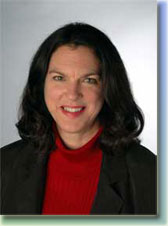
|

|
|
|
 |
Common ConcernsBesides common anxiety and/or depression, there are times when an individual has a concern that takes a primary focus and he or she really wants to concentrate on that issue. The following are examples of this. Relating to Difficult People - There are periods when we feel we spend an enormous amount of mental energy and time dealing with difficult people in our lives. They could be family members, in-laws, bosses, employees, or friends. When they diminish our sense of well-being to an uncomfortable extent, it is important to get a handle on it. While therapy won't change difficult people, it can help to change our approach to them and help the skill-building needed to deal with them. Dealing with Grief Issues - Dealing with loss is one of the most difficult parts of life. Often family and friends are helpful with support but when they find it personally hard to see their loved one in pain, they may try to "make them feel better" when he or she really needs to work through the grief. Counseling has a place here. While friends lend support, counseling can help with the complicated grief, the kind that interferes with functioning, as well as the less complicated grief that needs to be worked through. Life Adjustments/Transitions/Changes - When life throws us a curve with something unexpected like a divorce, or when we are going through an expected transition like having a new baby or adjusting to an "empty nest" or menopause or retirement, counseling can help. Even when we have prepared, we are often faced with individual concerns that we didn't expect. A challenge can become an opportunity, especially if we learn more skill in dealing with ourselves or others. Making Decisions - Some people function well until they have to make decisions. They may make them too quickly or postpone them for too long. When decision-making gets in the way of good functioning or when someone is locked in a "won't budge" decision, counseling can help. Some people are "blocked" - they don't feel a firm preference, others are caught trying to move through obstacles like perfectionism (making the perfect decision) or people-pleasing (wanting everyone to be happy) or fear that they won't be able to handle the consequences of making an unwise decision. Creating a Comfortable Family Life - Home is that part of the world where people know when you're sick, miss you when you die and love you while you live. Family meetings, meals, times together can all create the glue that holds families together or drives them into conflicts. The problem is we don't always know how to create the kind of family life that we desire. Counseling can help work through the rough parts and create with the family the kind of environment that lends itself to a closer, more enjoyable family life. Dealing with Criticism - Many people describe themselves as "sensitive" when they actually mean that they hate to be criticized. They find it difficult to deal with the negative emotions that criticism brings. When most feedback feels like criticism and when we find ourselves growing more defensive with those we care about, protecting ourselves from what they are saying, relationships can become distant. We miss out on information that could make us closer to them. Besides, it doesn't feel good to keep a shield up or present a false front. Counseling can help identify the underlying patterns and work to improve one's responding by developing a variety of alternatives to defensiveness. These are just a few of the examples of concerns that people may present to a therapist. Addressing those issues that make life more difficult and less enjoyable can make a real difference in functioning so that we are less vulnerable to stress and feelings of anxiety and depression. More importantly, we can improve our quality of life, our sense of well-being, and how we feel about ourselves. Feel free to contact Dr. Alderman with these and other concerns to assess whether they can be addressed in therapy and how. Melody Alderman, Psy.D., M.Ed. Licensed Clinical Psychologist (PSY16319) 21031 Ventura Blvd. Suite 307 Woodland Hills, CA 91364 Phone: (818) 758-9933 Fax: (818) 776-9663 Email Dr. Alderman Home Individuals Couples Stepfamilies Common Concerns Directions © Dr. Melody Alderman, Psy.D., 2004. All Rights Reserved. Site Design by: Adam Wolf. |

|